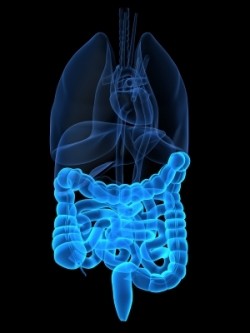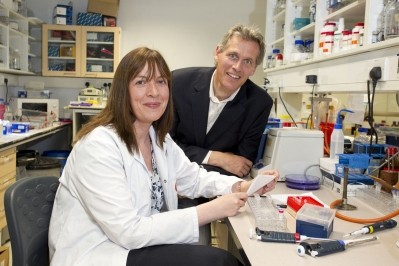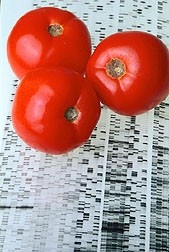Breakthrough study shows personalised nutrition future for probiotics

Consumption of a dairy drink containing three strains of probiotic bacteria was associated with changes in the activity of hundreds of genes, with the changes resembling the effects of certain medicines in the human body, including medicines that positively influence the immune system and those for lowering blood pressure.
Researchers from NIZO Food Research, Maastricht University, UMC St Radboud and Wageningen UR – within the framework of TI Food and Nutrition – report their findings in the Proceedings of the National Academy of Sciences (PNAS).
“Probiotics cause a local reaction in the mucosa of the small intestines,” said Prof Michiel Kleerebezem of NIZO food research. “These effects are similar to the effects of components that the pharmaceutical industry applies to medicines, but less strong.”
The researchers used dairy drinks containing the commercial probiotics Lactobacillus acidophilus Lafti-L10 (DSM), L. casei CRL-431 (Chr. Hansen), and L. rhamnosus GG (Valio) and compared this with a placebo drink. Seven healthy volunteers participated in the study.
Six hours after consumption of these drinks, the researchers took biopsies from the upper part of the small intestine (duodenum) and genetically analysed. The researchers observed “hundreds of differentially expressed genes that participate in (the regulation of) basal mucosal pathways, some with clinical relevance.
“This shows that investigating the effect of specific bacterial strains in cross-over trials using human volunteers may yield clinically relevant results,” they added.
“The results from this study may also contribute to the identification of the bacterial molecules that are involved in co-regulating human mucosal function. We consider that probiotics research might eventually deliver therapeutic interventions that correct mild deviations from normal intestinal metabolism and may contribute to maintenance of intestinal health under conditions of mild stress, such as physical exercise.”
Personalised probiotics
A similar approach as nutrigenomics research might also be applied to probiotics, wrote Prof Kleerebezem and his co-workers, anticipating that a person’s response to probiotics may not only be determined by the probiotic strain consumed, but also the person’s genetics, their diet and lifestyle, and their ‘resident microbiota’.
“This study could, therefore, be among the first steps to investigate the interplay between microbiota, probiotic, or other nutritional supplements and human genetics tow personalized nutrition,” they added.
Pushing back the boundaries
The research follows other exploratory and breakthrough work by Prof Kleerebezem and his collaborators, which found that probiotic bacteria may exhibit molecular changes, particularly on the cell surface, which are bound to impact on gene expression and function of the human intestine.
According to findings published earlier this year in The ISME Journal, major changes in the probiotic cell surface properties occur, and the form of the probiotic perceived by the intestinal mucosa may not be the same as the form of the probiotic added to the food product. The bacteria adapt to the gastrointestinal conditions.
Source: PNAS
Published online ahead of print, doi: 10.1073/pnas.1000079107
“Human mucosal in vivo transcriptome responses to three lactobacilli indicate how probiotics may modulate human cellular pathways”
Authors: P. van Baarlen, F. Troost, C. van der Meer, G. Hooiveld, M. Boekschoten, R.J.M. Brummer, M. Kleerebezem















